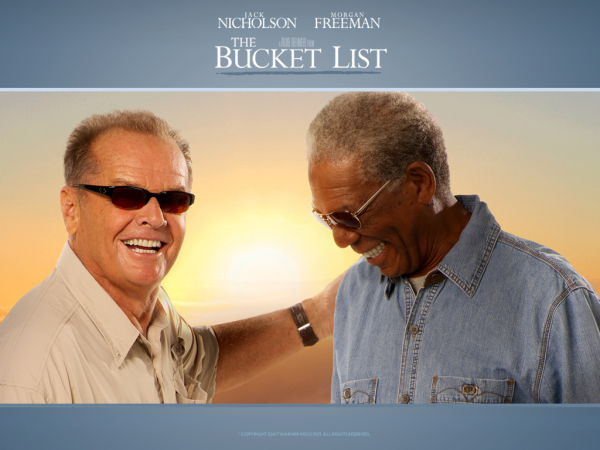
It happens to the best of us…you’ve applied for a great job or finally gotten the interview for it and hear, “We feel you’re overqualified for this position.” Talk about feeling like a deflating balloon! But don’t lose hope or give up. In this post, I’ll show you how can you salvage an opportunity in this situation.
Reasons
First, let’s talk about some reasons why you might apply for something you’re knowingly overqualified for…
- You truly love the job, and it currently fits where you want to be in your life or career—OR
- You’re at a point where you need to take something—a stop gap job—in an interim fashion to pay the bills.
I’m going to focus on the first situation.
Why Hiring Managers are Concerned
So why would a hiring manager be concerned about a candidate being overqualified?
- They’re wondering why you’d consider the position for which you’re applying—maybe there’s a negative there about why you are not at your last position, etc.
- Hiring managers don’t like turnover. They’re worried you may continue job searching and that you’ll leave if you come across a better job somewhere else.
- Last, maybe they’re concerned whether the position can meet your expectations and how long you’ll be happy doing it.
Your Resume
If you’re ever going to have a shot at a job for which you feel you could be branded overqualified, you’ll need to tailor your resume so you get the interview. If applying for the job requires inclusion of a resume, tailor your resume and cover letter to support the fact that you’re the right candidate for the job—play up the strength of the match between you and this position in your accomplishments listed for each of your former jobs, the Summary section, and your Core Competencies.
Omit higher level skills that don’t pertain to the position for which you’re applying or interviewing. Some of you may need to switch from a chronological resume format to a functional (see bit.ly/ressamp and bit.ly/1p1tQUz for more info about resume formats) in order to emphasize your experience and accomplishments that match the job description. See the links on this slide for more information about resume formats.
Responses
If the thought that you’re overqualified comes up in an interview, does it mean you’ll be disqualified? Not always—if you prepare ahead of time and handle it correctly. Make sure you practice addressing the tough concerns I’ll cover in this section.
First, don’t be proactive and bring up the idea that you might be overqualified. And don’t come in with a bad attitude about “having” to apply for this job due to your current circumstances. Interviewers can pick up on negative vibes. Impress him or her with well thought out questions about the job duties, the company, and maybe the industry.
If the hiring manager alludes to the fact that the economy or industry is currently down and that there’s a low chance of a promotion for a while, say something like, “I’m looking forward to learning about the company and this role on a day to day basis. And when the economy picks back up, I’m sure there will be new opportunities.”
The hiring manager may ask how you will explain to your next employer why you took this position. This is a sensitive question since you need to portray yourself as realistic yet ambitious. Stress that you aim to make the most of any career opportunity and are confident that you’ll have some noteworthy achievements while working with the company.
If the interviewer is worried about your getting bored, talk about examples of how you found opportunities for professional growth in previous positions you held for more than 3 years. If you have a tenured work history, point out how long you held your previous jobs to highlight your loyalty.
A lower salary than that of your previous position can set off a red flag. If this concern comes up, say something like, “I’m sensing you’re concerned that money is my main motivator and that I’ll take a higher paying position elsewhere as soon as I find one. Is that it?” After the inevitable affirmative response, follow up with, “I do have some rich work experience, but if I can illustrate that salary is not my primary motivator, would that influence your consideration of me as a candidate?” Then state that _____ [the company at which you are interviewing] is of particular interest to you because of _____ [your reasons]. Then, round out the discussion with some examples of how things like teamwork, recognition, work environment, the type of work, and/or career advancement are also valuable to you, reassuring him or her that money isn’t all that’s important in the job you’re seeking. Or your response could be as simple as, “I feel that being satisfied in a job and having a good fit and a fair salary with room for growth (monetarily and positionally) are more important than whether a position initially seems to completely mirror my education and work history.”
You may have a hiring manager who is more subtle about your overqualification. Career and interviewing coach Alex Freund advises this strategy: When you get a sense that a hiring manager is pigeonholing you as overqualified, quickly try to discern the root of what she’s getting at—concern that the salary for the job is too low, that you’ll quit for another job in the near future, etc. If need be ask, “What do you need to hear from me that would make you feel more like I’m the best fit for this position? What else do you have concerns about that you’d like to discuss?” Then (reference the responses I covered earlier in this section and) address her concerns. Explain why the job is a good fit for you at this point in your career. And if it’s an issue of passion for the work this job involves, mention that as well.
There’s something to be said for the honest approach. Here’s an example from my work history: In my interview for a job at a security guard and custodial company, the GM straight out asked me, “So how do I know you won’t leave and go back to the music industry?” I was honest and explained my situation and career plans and answered his question sincerely, trying to build his confidence that I was not wanting this job as a short-term holdover. I got the job. Most interviewers can gauge your sincerity. Being able to talk honestly about a legitimate concern (and potential disadvantage) without getting your feathers ruffled can show your true interest in the position and also build rapport with the interviewer. He may even respect you more, and at the very least, you’ve cast a positive light on yourself as a viable candidate.
If there’s still doubt lingering on the interviewer’s part, you can point out that the company would be getting someone experienced and with the potential to move up—and if you have volunteer experience or community commitments that are relevant to the job, bring those up to help show you’re a good fit.
In Closing
Being ready for the possibility of being pigeonholed as overqualified can help you handle this element of your job search confidently, which increases your chances of staying in the running. If you have any inkling that this concern will come up—based on your previous duties, title, salary, etc.—prepare, then feel out the situation, and use your judgment. Please share this post if it’s been helpful to you.
Watch my video on this topic:
Sources:
• Here Today, Hired Tomorrow by Kurt Kirton
• monster.com/career-advice/article/answer-interview-questions-when-overqualified
• monster.com/career-advice/article/resume-dilemma-im-overqualified
• monster.com/career-advice/article/overqualified-6-tips-to-shed-the-label-hot-jobs
Looking for a new job? Want to get what you want fast? Check out my book, Here Today, Hired Tomorrow (kurtkirton.com/hthtbook), and subscribe to my blog (kurtkirton.com) for free advice on your job search.
